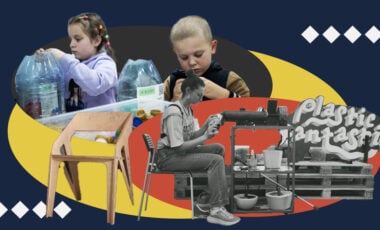Happy grannies and grandpas. How Ukrainian Volunteer Service helps the elderly during the war
It is a story about how the joint efforts of a public organization, a charity foundation, and a community of volunteers managed to organize aid for lonely older people during the war.

What is the problem?
With the onset of the full-scale war and the humanitarian crisis that followed, the number of people in need of assistance in Ukraine has risen sharply. In particular, the elderly have become more in need of help.
The State Statistics Service reports more than 10.8 million retirees in Ukraine. Most of them manage independently or are cared for by their relatives. Older people who don't have relatives or their relatives don't have the physical capacity to help them need help.
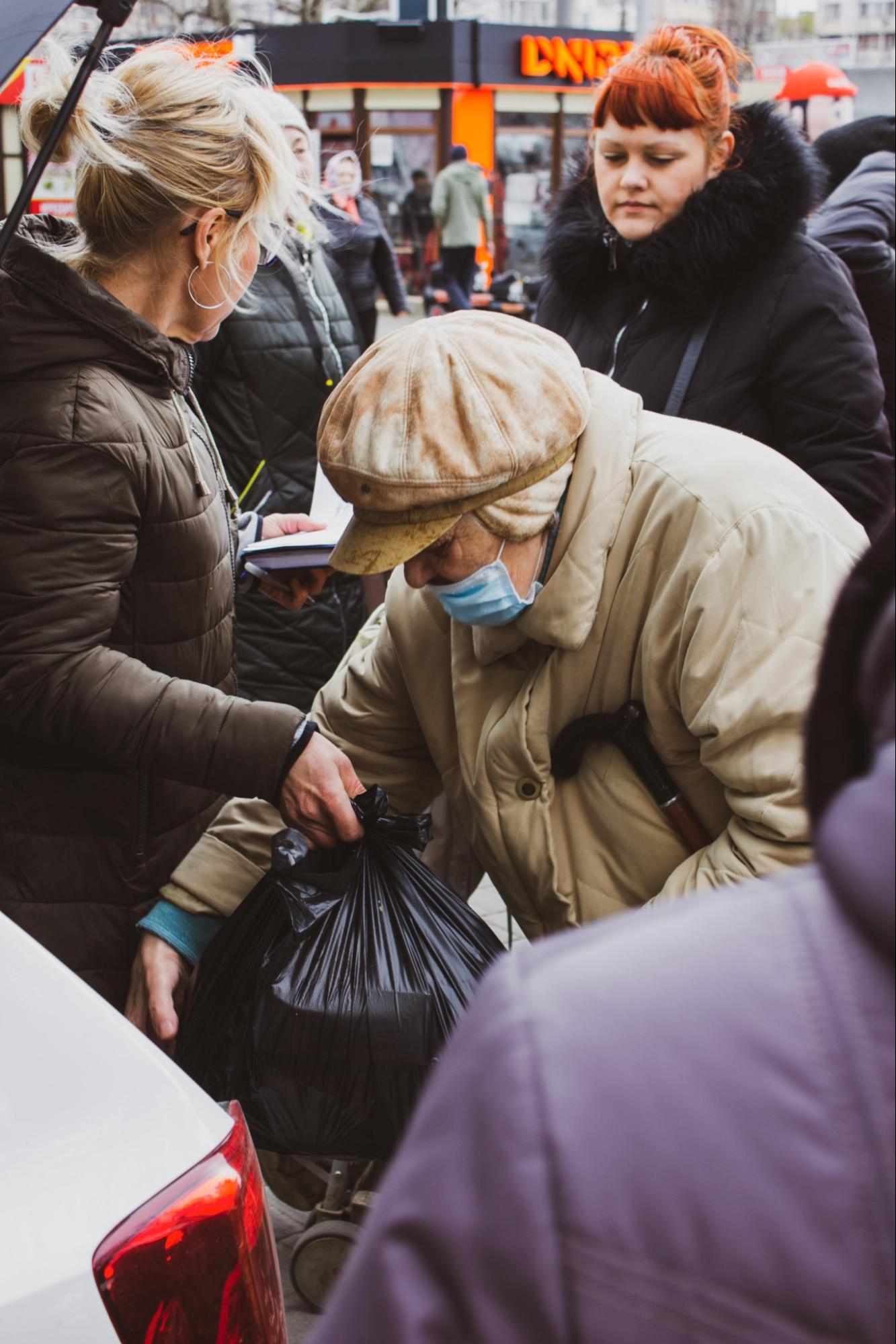
"During the full-scale invasion, the problem of lonely elderly people has become more widespread than in previous years. For example, during the coronavirus pandemic, we mostly talked about emotional and psychological support; now we are talking about providing basic needs: access to food and medicine," says Viktoria Zatsnova, head of the Ukrainian Volunteer Service's humanitarian department.
In addition, many older people often refuse to evacuate from dangerous places; therefore, in frontline areas, they vitally need the help of volunteers. However, it's not just about flashpoints. Due to rising prices and logistics, such assistance is required across the country.
What is the solution?

The Ukrainian Volunteer Service organized targeted assistance with food kits and medications to solve this problem. For efficient work, they partnered with the Starenki Charitable Foundation, which has been helping the elderly for over seven years and involving their community of volunteers.
The protagonists of this story are volunteers who respond to the organization's request, buy food and medicine and deliver them to lonely older adults.

"Without a community of volunteers, nothing would've worked. They help in different settlements. For example, we have an exemplary case of assistance on the front line in Pokrovsk, the Donetsk region. There, they have a volunteer organization specializing in human rights before the war, but it has now changed its focus and supports those who need it most. We helped these volunteers. They have received financial support in our mini-grant program and are helping the elderly. During the two months of our interaction, they made three deliveries of food kits. 30-50 people who stayed in the city received help. These are mostly elderly people who need basic products and medicines," says Viktoria Zatsnova.
How does it work?

At the beginning of russia's full-scale invasion, the Ukrainian Volunteer Service launched the Volunteer Hotline, a chatbot to contact for help. After the request comes to the line, a volunteer case manager processes it. They must check it for integrity and verify. To do this, they call or correspond with those who need help and check if the request is really for an older person.
"Unfortunately, there are many cases when people try to profit from humanitarian aid. Case managers check whether a person needs help through communication and questions. We find out why people need help, whether they have relatives nearby, or whether social services help them. It is quite easy to detect fraudsters: they are confused, nervous, and aggressive when answering questions," Viktoria Zatsnova explains.
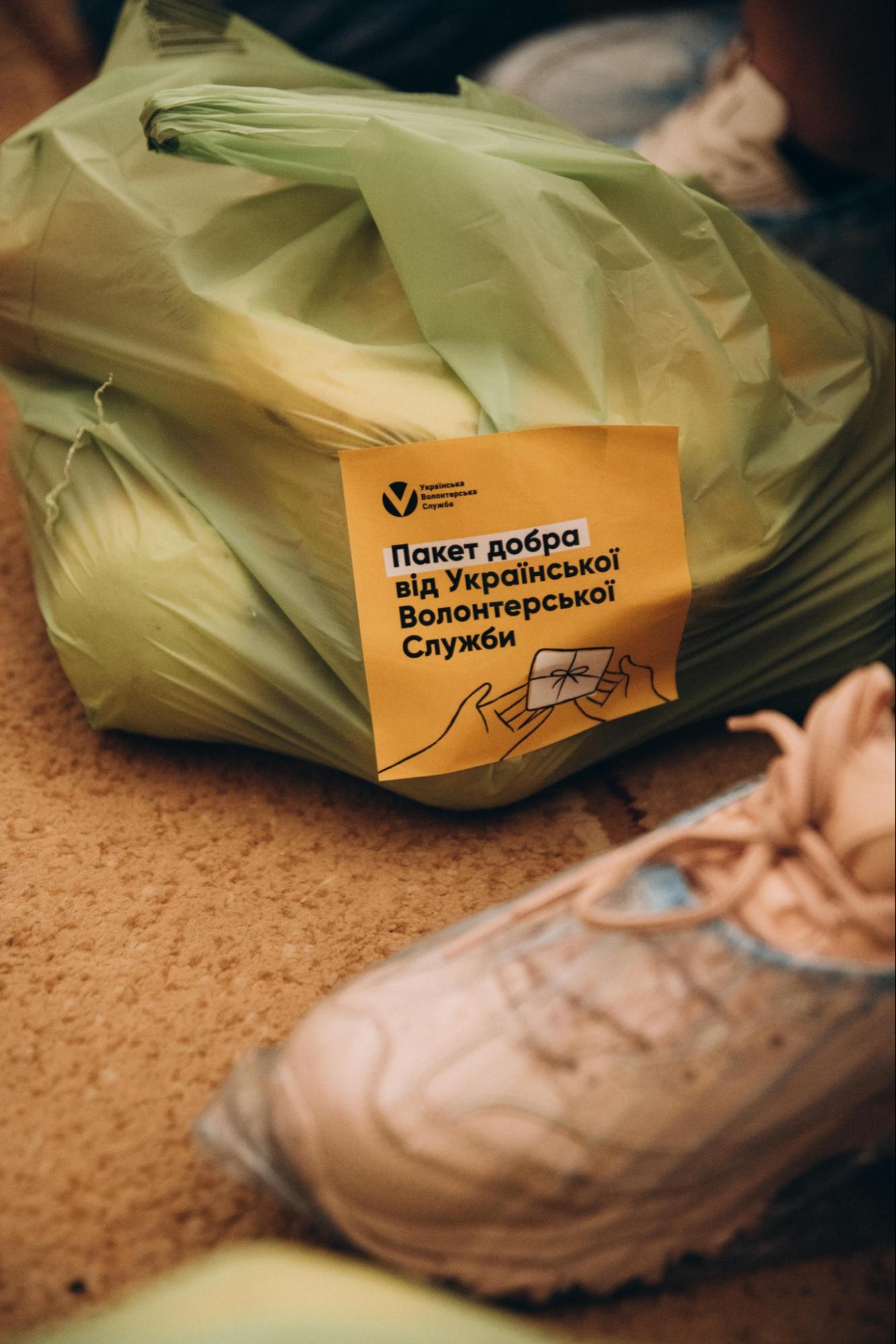
After testing, there are several ways a person gets help. The first is that the case manager is looking for a volunteer from the same locality where the request came from at the Ukrainian Volunteer Service, which numbers over 7,000 people, to find out if they can close it: buy a basic food kit and medicine and deliver it to an older person. They will also find out if the volunteer can do it at their own expense; if not, the organization reimburses the funds with charitable contributions.
"We explain to people that we don't deliver products to order. Our product kits contain basic products. Their cost is about 500 hryvnias per person per month. We also check what medications we are being asked for. For example, there was a case when one drug blister cost 1000 hryvnias. We tested and found that these are drugs that help stop breastfeeding. It was not a medicine for an elderly person," says Viktoria.
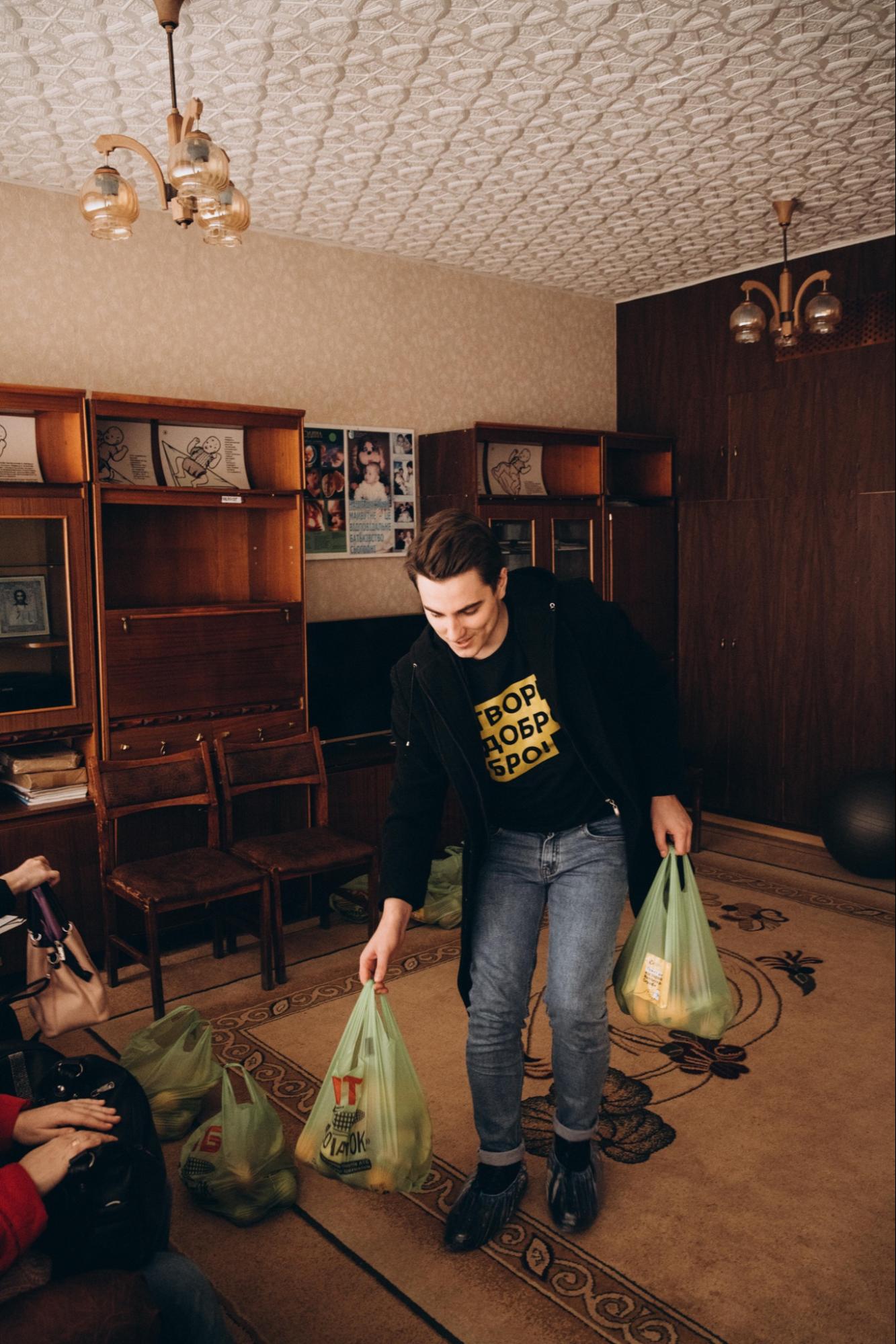
Suppose the organization cannot find a volunteer or partner organization in the settlement. In that case, they find a volunteer in the nearest town or village and send food and medicine with the help of the Nova Poshta postal service.
Glovo couriers also help buy and deliver products and medicines in six Ukrainian cities: Kyiv, Dnipro, Zaporizhzhia, Poltava, Zhytomyr, and Chornomorsk.
Another option is to consult on where to get help. If the organization cannot close the person's request, the case manager explains to the person where and how to apply for aid.
Does it work?
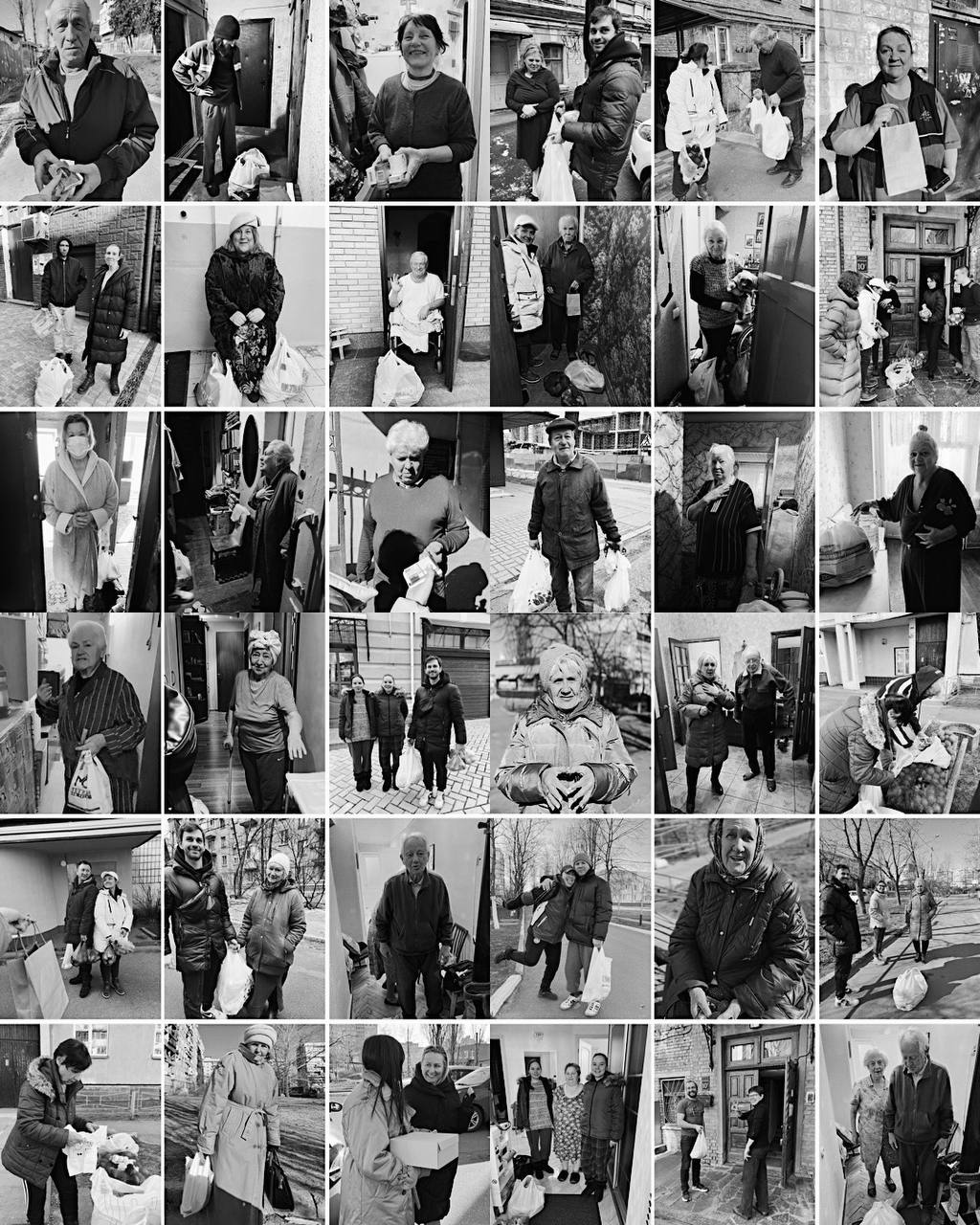
Since the beginning of the full-scale invasion, the Volunteer Hotline has received more than 1,100 requests for assistance. The organization provided aid in more than 700 cases. Some requests have been canceled (the managers could not verify them), and some are still being processed.
"One of my favorite stories in this project is a story from Pokrovsk. Our volunteers there delivered food kits to the elderly. The visit to one of the older men happened to be on his birthday. He turned 93 years old. He was extremely touched and grateful that despite such a difficult time in the country, he was not forgotten," says Viktoria Zatsnova.
In total, volunteers helped more than 4,000 people. They also collected charity contributions for targeted assistance of over 1.5 million hryvnias.
Even more helpful solutions!
Tips from the Ukrainian Volunteer Service if you want to help the elderly
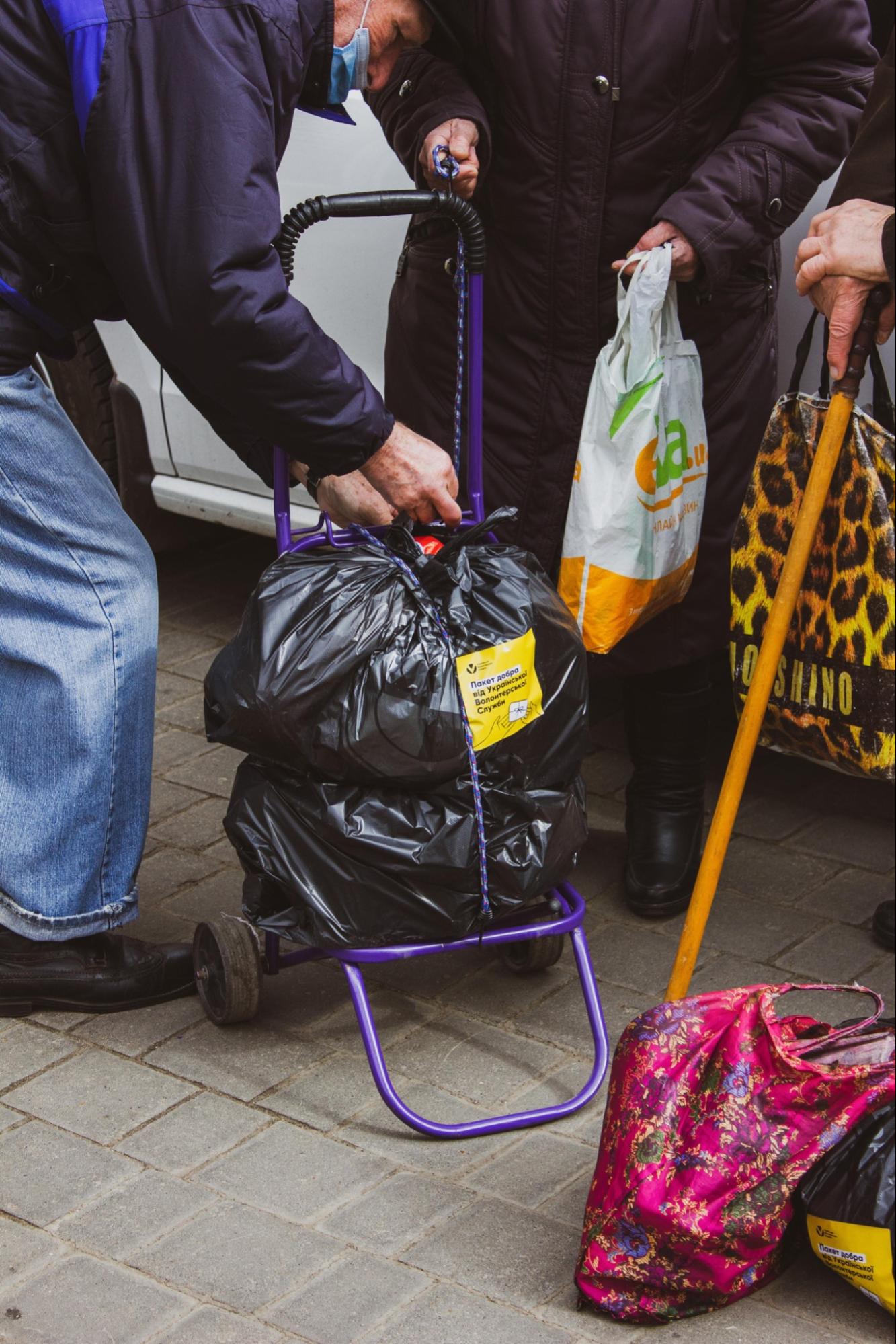
If you want to volunteer and help the elderly but don't know where to look for people who need help, find out if your neighbors need it. Very often live in our buildings and don't even suspect that people who may live nearby find it difficult to go to the store for groceries or don't have the means to do so. Therefore, you should start with developing a good-neighborliness culture.
The Ukrainian Volunteer Service and the Starenki Foundation have also developed a detailed note on organizing care for the elderly. You can also join the support by donating cash to the targeted assistance provided by the Service.































